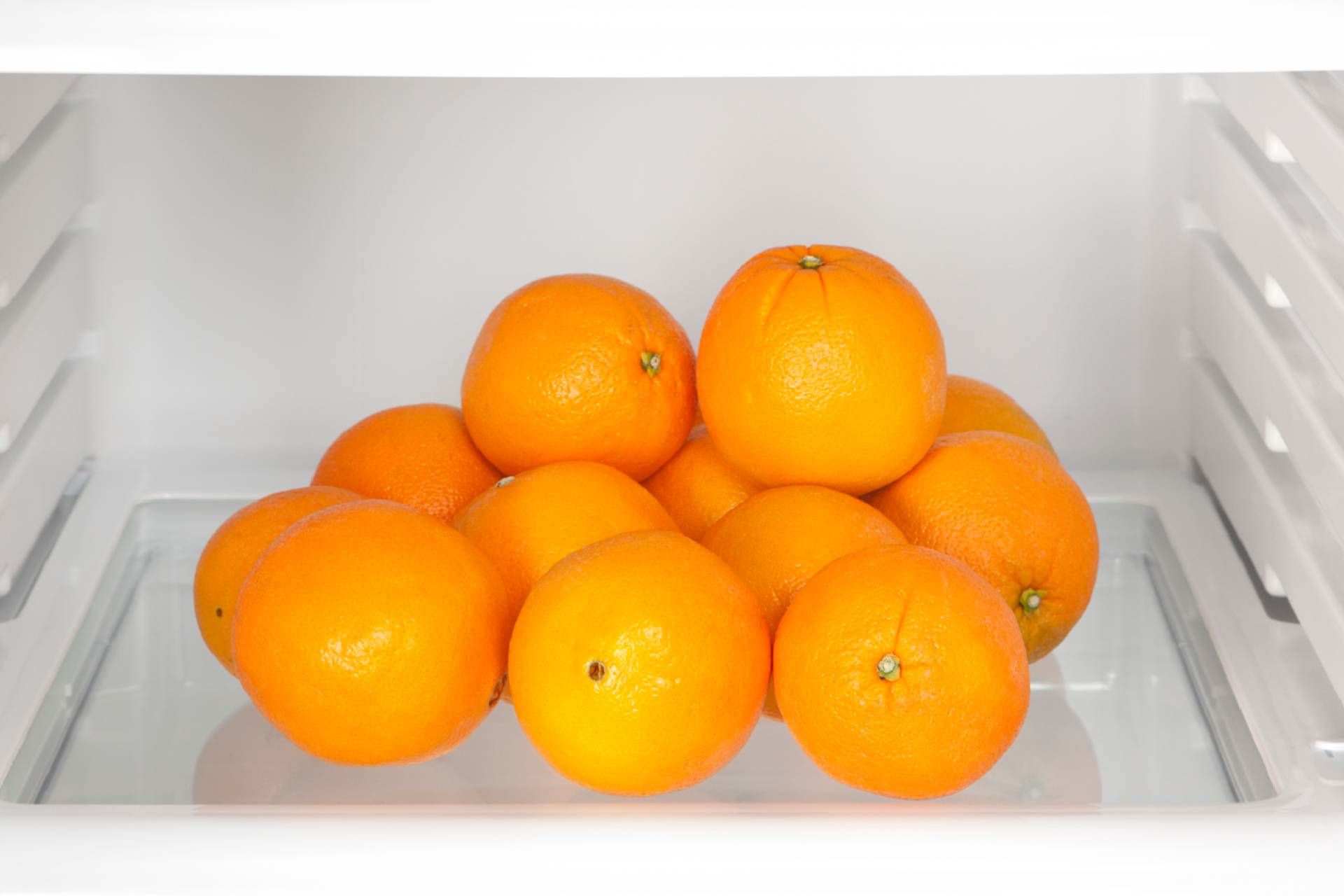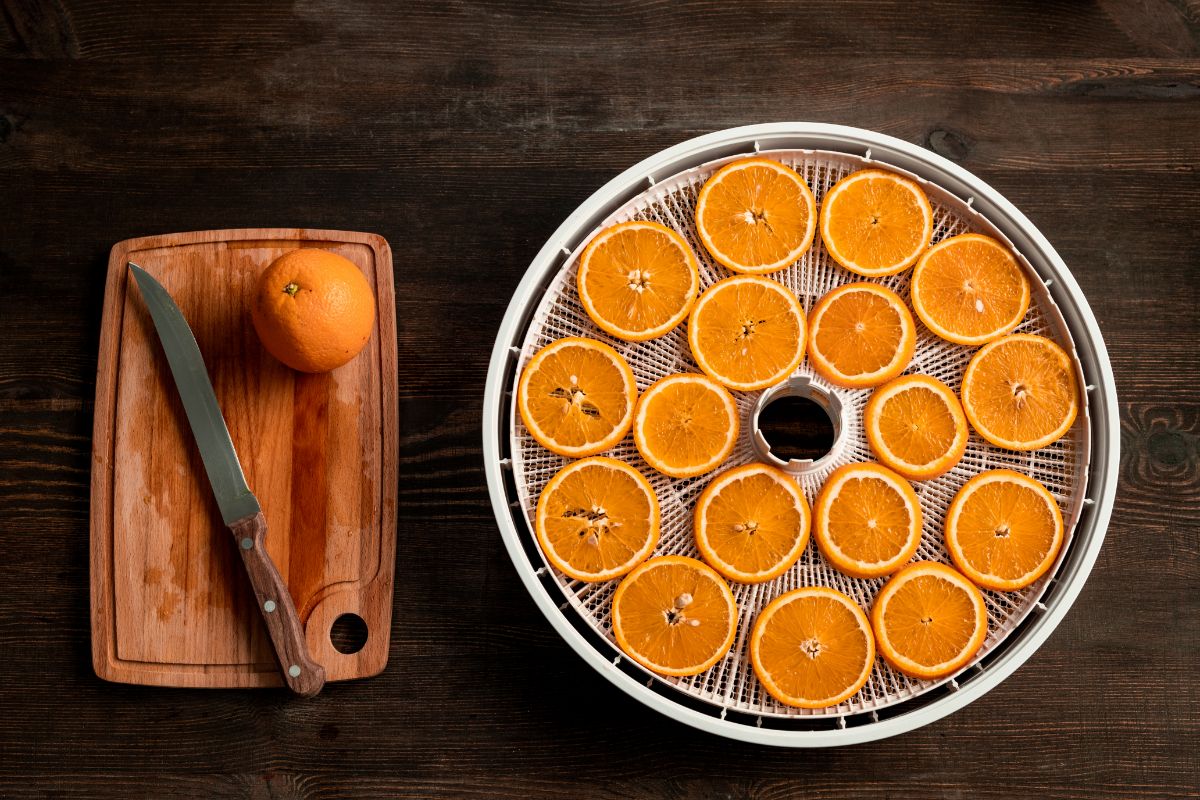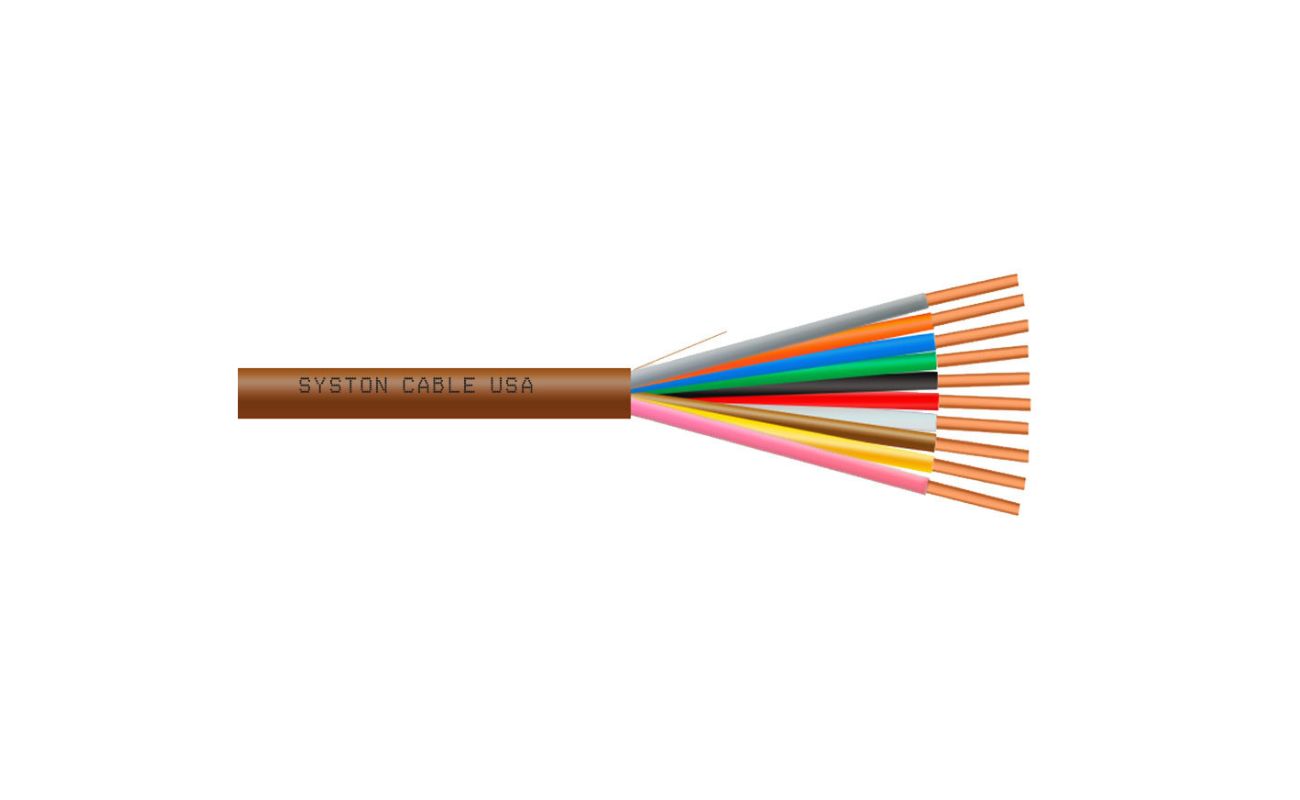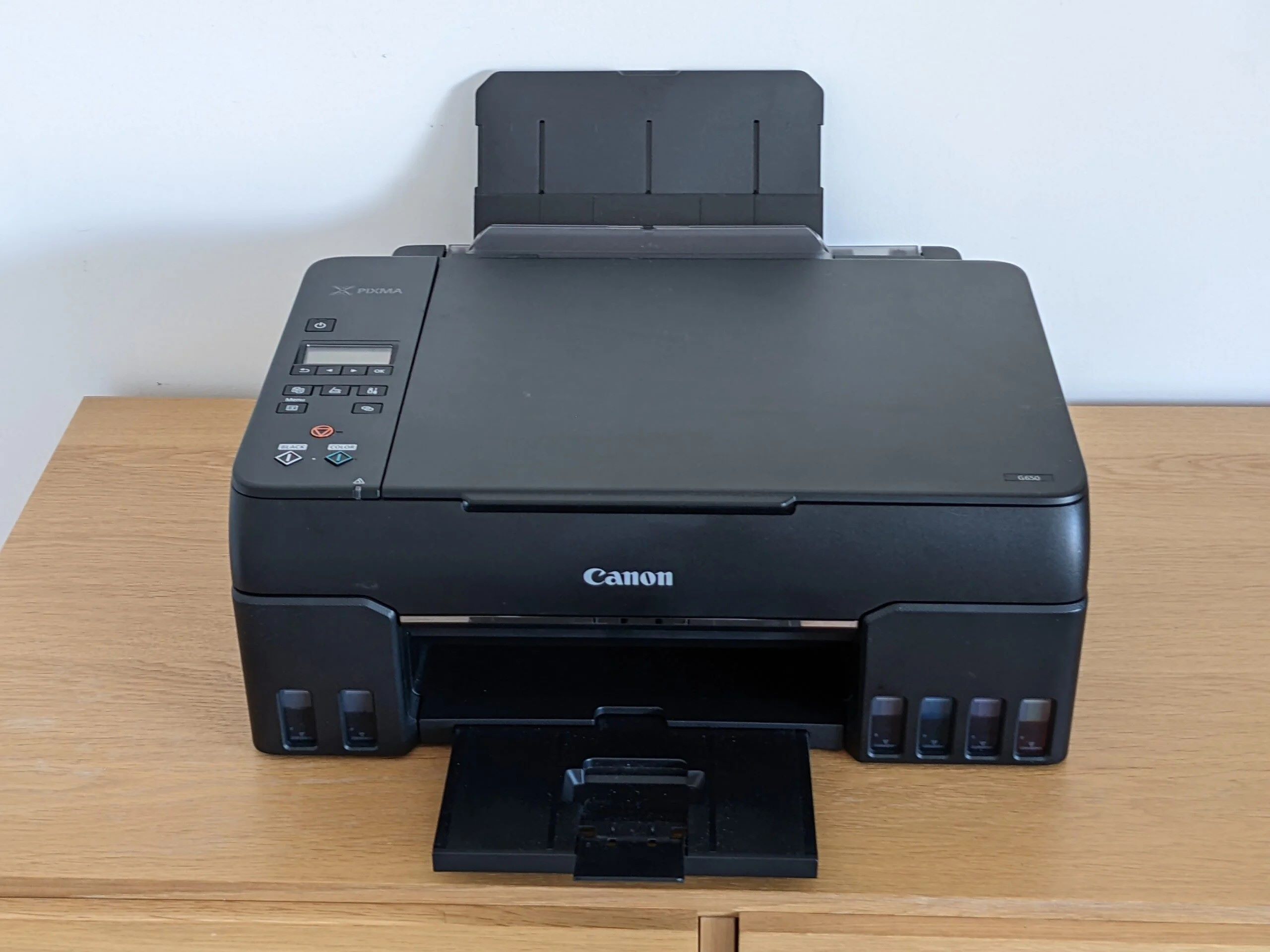

Articles
How To Store ‘Cuties’ Or Seedless Oranges
Modified: December 7, 2023
Learn how to store Cuties in this informative article. Find helpful tips and tricks for keeping these small, sweet citrus fruits fresh and delicious.
(Many of the links in this article redirect to a specific reviewed product. Your purchase of these products through affiliate links helps to generate commission for Storables.com, at no extra cost. Learn more)
Introduction
When it comes to enjoying the refreshing and tangy flavor of citrus fruits, cuties are a popular choice. These small, seedless oranges are not only delicious but also packed with essential vitamins and minerals. Whether you enjoy them straight out of the peel or add them to your favorite recipes, cuties are a versatile and nutritious fruit.
However, sometimes you may have more cuties than you can consume in one sitting, leading to the question of how to store them. Proper storage is crucial to maintain the freshness and taste of cuties, ensuring that they stay juicy and flavorful for as long as possible. In this article, we will explore different methods for storing cuties, whether you prefer to keep them at room temperature, in the refrigerator, or even freeze them for long-term storage.
By following the tips and techniques outlined in this article, you can extend the shelf life of your cuties, reducing waste and ensuring that you always have delicious citrus fruits at your disposal. So, let’s dive in and discover the best way to store cuties for optimal freshness and flavor!
Key Takeaways:
- Choose firm, smooth, and heavy cuties with a fresh aroma for optimal freshness. Prepare them by washing, drying, and removing any damage before storage to ensure longer shelf life and delicious flavor.
- Store cuties at room temperature for short-term use, in the refrigerator for extended freshness, or freeze them for long-term storage. Follow proper handling and storage techniques to enjoy their vibrant flavor and juiciness for an extended period.
Read more: How To Store Peeled Oranges
Choosing the Right Cuties
Before you even think about storing cuties, it’s important to choose the right ones at the store or market. Here are a few tips to help you select the best cuties:
- Look for firmness: When you gently squeeze the cutie, it should feel firm and not too soft. Avoid cuties that are overly mushy, as they may be past their prime.
- Check the skin: The skin of the cutie should be smooth and evenly colored. Avoid fruits with blemishes, bruises, or uneven coloring, as these may indicate damage or spoilage.
- Consider weight: A heavier cutie usually indicates juiciness. Pick up a few cuties and compare their weight to find the juiciest ones.
- Smell the fruit: Give the cutie a gentle sniff. It should have a fresh, citrusy aroma. If it smells off or moldy, it’s best to choose a different one.
By following these guidelines, you can ensure that you’re selecting high-quality cuties that are ripe and ready to eat. Remember, the freshness of the fruit at the time of purchase will impact its storage life, so it’s essential to start with the best fruit possible.
Preparing the Cuties for Storage
Before you store your cuties, it’s important to properly prepare them to ensure optimal storage conditions:
- Wash and dry: Start by washing your cuties under cool running water to remove any dirt or residue on the skin. Pat them dry with a clean towel to remove excess moisture.
- Remove stems and leaves: If there are any stems or leaves attached to the cuties, gently remove them. This helps prevent moisture buildup and potential mold growth during storage.
- Inspect for damage: Take a closer look at each cutie and discard any that have bruises, cuts, or signs of spoilage. Damaged fruits can accelerate the decay process and affect the quality of the remaining cuties.
- Separate individual fruits: To prevent the spread of mold or spoilage, it’s best to store cuties individually. This way, if one fruit goes bad, it won’t contaminate the entire batch.
By taking the time to prepare your cuties properly, you are setting the stage for successful storage. These simple steps will help ensure that your cuties stay fresh and delicious for as long as possible.
Option 1: Storing Cuties at Room Temperature
If you plan to consume your cuties within a week, storing them at room temperature can be a convenient option. Here’s how to do it:
- Choose a cool, dry place: Find a location in your home that is away from direct sunlight, preferably with a consistent room temperature between 60°F (15°C) and 70°F (21°C).
- Spread them out: Place the cuties in a single layer in a fruit bowl, on a countertop, or in a well-ventilated container. Avoid overcrowding them, as this can lead to bruising and accelerated ripening.
- Monitor regularly: Check on your stored cuties regularly, especially as time goes by. Remove any fruits that show signs of mold or decay to prevent the spread of spoilage.
Storing cuties at room temperature allows them to fully ripen, resulting in sweeter and juicier fruit. However, keep in mind that they won’t last as long as when stored under refrigeration. If you live in a particularly hot or humid climate, it’s best to opt for refrigeration to extend their shelf life.
Note: If you have cuties that are already partially peeled or sliced, it’s important to refrigerate them to prevent bacterial growth and maintain their freshness.
Option 2: Storing Cuties in the Refrigerator
If you have a surplus of cuties or want to extend their shelf life beyond a week, storing them in the refrigerator is an excellent choice. Follow these steps to ensure optimal storage:
- Choose the right temperature: Set your refrigerator temperature to around 40°F (4°C). This cool temperature will help maintain the cuties’ freshness and slow down the ripening process.
- Keep them separate: Store the cuties in a produce drawer or in a breathable container. Alternatively, you can wrap each cutie individually in a paper towel to absorb excess moisture and prevent them from touching each other, which can cause bruising.
- Avoid extended storage: While cuties can last up to 2-3 weeks in the refrigerator, it’s best to consume them within the first week or so for optimal taste and quality.
Refrigeration helps prolong the shelf life of cuties and maintains their juicy texture. The cold environment slows down the natural ripening process and prevents the growth of mold and bacteria.
When you’re ready to enjoy a refrigerated cutie, remove it from the refrigerator and let it sit at room temperature for a few minutes to bring it back to its flavorful best.
Store cuties in a cool, dry place away from direct sunlight. They can be kept at room temperature for a few days or in the refrigerator for up to two weeks. Avoid storing them near strong-smelling foods as they can absorb odors.
Read more: How To Store Orange Zest
Option 3: Freezing Cuties for Long-Term Storage
If you have a surplus of cuties or want to store them for an extended period, freezing is a great option. Follow these steps to freeze cuties:
- Peel and segment the cuties: Start by peeling off the skin of the cutie, then carefully separate the segments. If you prefer, you can also slice the cuties into smaller pieces.
- Remove excess moisture: Pat the cutie segments or slices dry with a paper towel to remove any excess moisture. This prevents them from freezing into a solid block.
- Place on a baking sheet: Arrange the cutie segments or slices in a single layer on a baking sheet lined with parchment paper. Make sure they are not touching to prevent sticking together.
- Flash freeze: Place the baking sheet in the freezer and allow the cuties to freeze for about 1-2 hours, or until they are solid.
- Transfer to a freezer bag: Once the cuties are fully frozen, transfer them to a labeled freezer bag. Squeeze out any excess air and seal the bag tightly.
- Store in the freezer: Place the freezer bag with the cuties in the freezer. They can be stored for up to 3 months.
When you’re ready to use the frozen cuties, simply thaw them in the refrigerator overnight or at room temperature for a few hours. You can enjoy them as a frozen treat, add them to smoothies, or use them in your favorite recipes.
Note: While the texture of frozen cuties may slightly change due to the freezing process, they retain their delicious flavor and nutritional value.
Tips for Maintaining Freshness
To ensure your cuties stay fresh and delicious for as long as possible, consider these helpful tips:
- Avoid excess moisture: Cuties are prone to mold and rot when exposed to excess moisture. Before storage, make sure the cuties are dry, and avoid placing them in damp areas.
- Handle with care: Cuties have delicate skin that can easily bruise or puncture. Be gentle when handling them to prevent damage.
- Store away from ethylene-producing fruits: Some fruits, such as apples and bananas, naturally release ethylene gas, which can accelerate the ripening process of cuties. Keep cuties away from these fruits to maintain their freshness.
- Rotate your stock: When storing multiple cuties, make sure to rotate the stock. Consume the older ones first to prevent them from spoiling.
- Keep an eye out for spoilage: Regularly inspect the cuties for any signs of mold, decay, or soft spots. Remove any spoiled fruits to prevent the spread of spoilage to the rest of the batch.
By following these tips, you can maximize the shelf life of your cuties and enjoy their vibrant flavor and juicy texture for an extended period.
Frequently Asked Questions
Here are some common questions regarding the storage of cuties:
-
- Can I store cuties with other fruits?
It’s generally best to store cuties separately from other fruits, especially those that produce ethylene gas, as this can speed up the ripening process and affect the quality of the cuties.
-
- Can I freeze whole cuties?
While it’s possible to freeze whole cuties, it’s recommended to peel and segment them before freezing to make the fruit more accessible and easier to use later on.
-
- How long do cuties last in the freezer?
Frozen cuties can last up to 3 months in the freezer. However, for the best quality, it’s recommended to consume them within the first month of freezing.
-
- Can I store cuties in plastic bags?
Plastic bags can be used for storing cuties in the refrigerator or freezer. Ensure the bags are sealed tightly and try to squeeze out as much air as possible to prevent freezer burn.
-
- Can I store cuties in glass containers?
Glass containers can be used for storing cuties in the refrigerator, but avoid using them for freezing as glass can easily crack or break in the freezer.
If you have any other questions or concerns about storing cuties, it’s always a good idea to consult your local agricultural extension office or a trusted source for further guidance.
Conclusion
Storing cuties properly is essential to preserve their freshness, flavor, and nutritional value. Whether you choose to store them at room temperature, in the refrigerator, or even freeze them for long-term storage, following the right techniques and tips can help you enjoy these delightful citrus fruits for a longer period.
When selecting cuties, opt for firm fruits with no blemishes and a fresh citrusy aroma. Remember to prepare them by washing, drying, and removing any stems or leaves before storage. Depending on your needs, you can store cuties at room temperature for short-term consumption, in the refrigerator to extend their shelf life, or even freeze them for later use.
By following the guidelines in this article, you can enjoy the tangy and sweet taste of cuties whenever you desire, while reducing waste and maximizing their storage potential. So go ahead, stock up on these delicious citrus fruits, and use the appropriate storage methods to ensure they stay fresh and flavorful for your enjoyment!
Frequently Asked Questions about How To Store 'Cuties' Or Seedless Oranges
Was this page helpful?
At Storables.com, we guarantee accurate and reliable information. Our content, validated by Expert Board Contributors, is crafted following stringent Editorial Policies. We're committed to providing you with well-researched, expert-backed insights for all your informational needs.















0 thoughts on “How To Store ‘Cuties’ Or Seedless Oranges”